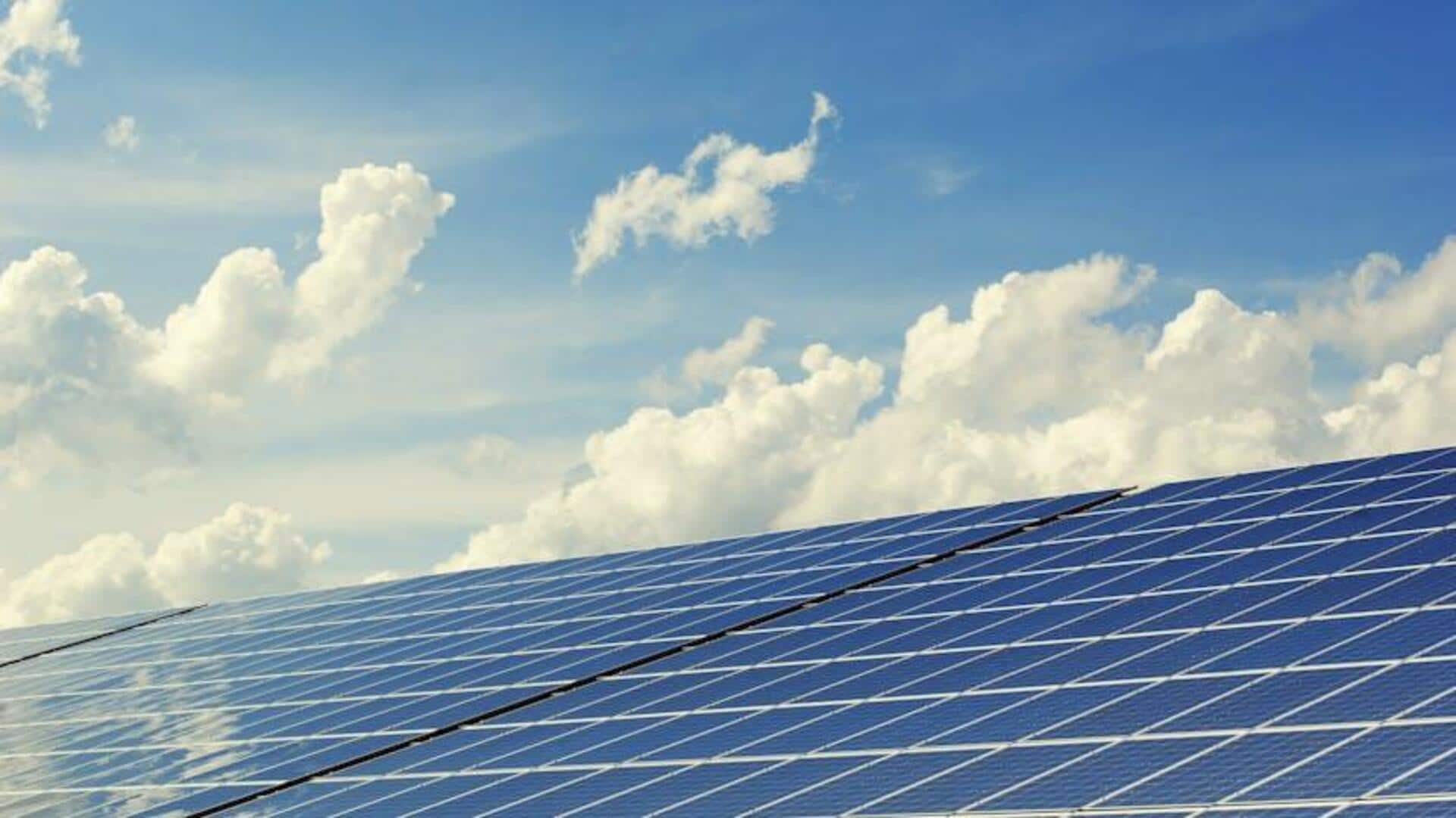
Harnessing solar power: Cost-effective solution for reducing electricity bills
What's the story
In today's era, where energy costs are on a constant rise, finding sustainable and cost-effective solutions is crucial for financial well-being.
Solar energy, with its abundant availability in India, presents a promising avenue for optimizing household and business expenses.
This article explores practical ways to leverage solar power, aiming to reduce electricity bills and contribute to environmental sustainability.
Tip 1
Understanding solar investment returns
Solar panels, with an initial cost ranging from ₹40,000 to ₹75,000 per kilowatt, might seem expensive at first.
However, considering their 25-year lifespan, households can significantly reduce electricity expenses by up to 90%.
This investment typically recovers within five to eight years.
The key to maximizing savings lies in selecting the correct system size based on one's energy consumption patterns.
Tip 2
Government incentives and subsidies
The Indian government provides subsidies and incentives for individuals and businesses adopting solar energy.
Residential properties are eligible for subsidies covering 20% to 40% of installation costs under national and state schemes.
Additionally, commercial installations enjoy tax benefits, such as accelerated depreciation, which further reduce the net cost of solar adoption.
Staying informed about these incentives can significantly lower the initial financial burden.
Tip 3
Selecting quality equipment
Opting for high-quality solar equipment is crucial for maximizing both efficiency and durability.
It may be tempting to select less expensive options in the market, but investing in certified panels from reputable manufacturers ensures better performance and a longer lifespan.
Furthermore, choosing equipment that comes with warranties or guarantees can significantly reduce future maintenance costs, making it a wise financial decision.
Tip 4
Smart energy management
Integrating smart technology with your solar power system can further optimize energy usage.
Smart meters allow the monitoring of real-time consumption data, while smart inverters enable more efficient management of generated power versus grid consumption.
Implementing these technologies helps in identifying patterns of wastage or inefficiency, which can be addressed through behavioral changes or system upgrades.
This leads to significant savings and environmental conservation.